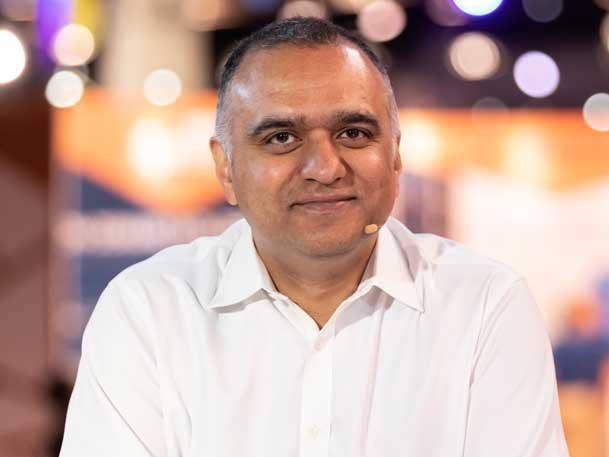In a compelling conversation with Shradha Sharma, Founder and CEO of YourStory, Dheeraj Pandey, the co-founder of DevRev and former CEO of Nutanix, shares profound insights into the future of artificial intelligence (AI). Pandey emphasizes that the true disruption in AI lies in the unglamorous work of integrating siloed enterprise data, a crucial step for AI to reason effectively within an enterprise setting.
The Myth of AI as a “Magic Wand”
For Pandey, one of the biggest misconceptions about AI is the belief that it is a “magic wand.” He stresses that AI systems rely heavily on quality data and knowledge, with poor data yielding poor results. “If you don’t do it right, you will get garbage,” he explains, highlighting that AI’s success is dependent on the data it is fed. This myth has long hindered the true understanding of AI’s potential and its real-world applications.
The Role of Integration in AI’s Success
Pandey compares AI’s evolution to past technological breakthroughs, like the advent of iPhones for consumer apps or AWS for infrastructure. In each case, integration played a critical role in transforming industries. Similarly, AI’s next leap involves unifying scattered enterprise data. He likens this to “taking the physics of CRM and SaaS tools and turning it into chemistry.” This integration, Pandey argues, is essential for AI to deliver true enterprise value.
DevRev’s Role in AI-driven Business Transformation

Founded by Pandey in 2020, DevRev aims to revolutionize back-office software just as Nutanix transformed data center hardware. DevRev’s focus is on creating an AgentOS layer that streamlines customer service, sales, product management, and software engineering, bringing AI-powered solutions to the forefront. Pandey calls this shift in enterprise software a “touchscreen moment” for AI, where conversational AI becomes the cornerstone of how businesses interact with data.
India’s Future in the AI Race
As AI continues to evolve, Pandey is optimistic about India’s role in the global race. He calls for a national push towards AI research, noting that India’s younger engineers could be at the helm of groundbreaking advancements in the field. Pandey also points to multilingual and voice tech as key areas where India can lead, noting that these technologies could level the playing field and help the country become a leader in AI innovation.
The Limitations of AI: What It Can’t Do
Despite his enthusiasm for AI, Pandey remains grounded in its limitations. He firmly believes that AI cannot replace emotional intelligence. While AI may excel at processing data, understanding society and empathy are deeply human traits that cannot be easily replicated. According to Pandey, it will take thousands of years for AI to develop a level of emotional intelligence comparable to humans.
“As historians, you look for patterns that keep repeating; the more things change, the more they remain the same. Even while building companies, I think about how hard it was back then. If you look at Sultan Mehmed or the Ottoman Empire, it was incredibly difficult to break through Constantinople, which was a thousand-year empire of Eastern Romans.”
Conclusion: The Future of AI and India’s Role
As AI continues to disrupt industries, Pandey’s vision for the future is clear: true AI breakthroughs will come from integrating siloed data and embracing AI-powered business infrastructure. With the right support for research and development, India could become a dominant force in the AI space, particularly if the country invests in multilingual and voice technologies. India’s next-generation engineers have the potential to drive this revolution if the right conditions are created.
For more insights into how AI is reshaping industries, read our articles on AI in Enterprise Software and Cloud Computing’s Impact on Enterprise Infrastructure.









